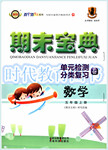题目内容
How did your friendships begin? Most start with a short conversation on a random day. Asking about a homework assignment in class or complaining about your painful legs after playing in a soccer game, you found your best pal by accident.
“Small talk is where all your relationships begin,” Forbes magazine summed up.
The following is a five-step guide to making small talk from Bernardo J. Carducci, the director of the Shyness Research Institute at Indiana University Southeast, US. Let’s have a look.
Getting started
Begin by talking about the setting, such as the weather outside or the room you are in (“It’s cold in here, isn’t
it?”). The purpose of talking about the setting is to show the other person that you are willing to make a conversation.
②The personal introduction
You should mention something about yourself, such as your name. A good personal introduction helps move the conversation forward.
③Looking for topics
At this point, you and your conversation partner need to find common ground. This is a good time to ask questions or to refer back to things you’ve said or heard earlier. Don’t worry if it gets quiet. The other person is probably just thinking of something to say.
④Expanding the topic
The goal is to keep the conversation going. At every stage, you should be careful not to talk too much. But don’t let the other person dominate the conversation either. If that starts to happen, mention something about yourself when he or she takes a breath.
⑤A polite ending
When ending a conversation, let the person know you’ll be leaving soon, express gratitude for the conversation and set the stage for a future conversation. For example, you could say, “I really must be going soon, but I had a great time chatting with you. I really liked hearing your opinion about that new movie. Here’s my phone number. Call or text me if you know of any other movies you think I might enjoy.”
1.According to the article, starting by talking about the setting is meant to ________.
A. find common ground B. impress the other person
C. make a conversation D. make the room warmer
2.What does the underlined word “dominate” mean in Tip④?
A. interrupt B. control C. adapt D. simplify
3.When ending a conversation, you’d better ________.
A. talk about how much you want to keep talking
B. show that you’ve not enjoyed the talk
C. mention a specific movie that you love
D. give your opinion about the other person’s earlier comments
4.The main purpose of the article is to ________.
A. encourage students to make more friends
B. give students tips on making small talk
C. introduce popular topics for students
D. teach students how to create friendships
1.C
2.B
3.A
4.D
【解析】
试题分析:本文主要讲了友谊来源于一次偶然的谈话,一次小的谈话就是友谊开始的地方,文章介绍了制造小型谈话一个五步法指导策略。开始谈话、个人介绍、寻找话题、扩大话题、一个有礼貌的结束。
1. purpose of talking about the setting is to show the other person that you are willing to make a conversation。意思是:谈论设置的目的是显示你想和她聊天的那个人。故选C。
2. every stage, you should be careful not to talk too much.意思是:在每一个阶段,你应该小心不要讲太多话。后面接着But don’t let the other person dominate the conversation either.可知:(不要讲太多话)但也不要让其他人控制谈话。故选B。
3. ending a conversation, let the person know you’ll be leaving soon, express gratitude for the conversation and set the stage for a future conversation.意思是:当结束一次谈话的时候,让其他人你将不久离开,表达对于这次谈话的感激,为未来的谈话设置舞台。可是一个礼貌的谈话的结束,是表达你想继续一直谈话的想法。故选A。
4. did your friendships begin? Most start with a short conversation on a random day.可知文章主要讲述了友谊如何产生,后文也主要教导学生怎么创造友谊。故选D。
考点:考查说明文阅读。

 期末宝典单元检测分类复习卷系列答案
期末宝典单元检测分类复习卷系列答案8月3日云南地震牵动着全国人们的心,某报社准备招募40名志愿者前往云南救助伤者。假如你是李华,某医学院的学生,你为云南痛心,看到很多人不顾个人安危救死扶伤,你十分感动,也想当一名志愿者。请根据下面的广告写一封应聘信。
We are now recruiting 40 volunteers to go to Yunnan, an earthquake-stricken area in need of your help. Please give them a hand. Qualifications: Male, between 18 and 35 years of age; Determined, brave, kind, calm; In good health Good knowledge of first aid and mountainous life |
注意:1. 词数 100左右;注意使用应聘信的常用词语;
2. 信的开头和结尾已经给出,不计入总词数;
3. 可适当增加细节,以使行文连贯。
Dear Sir or Madam,
I have learned from your newspaper that you are recruiting 40 volunteers to help the earthquake victims in Yunnan.
Yours,
Li Hua